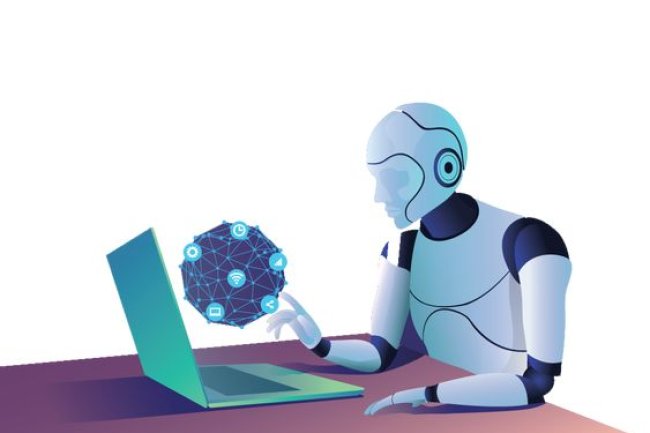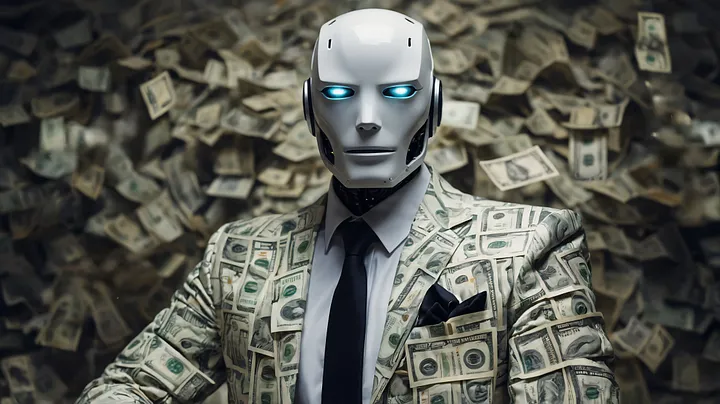What does AI replace?
AI has the potential to replace certain tasks and jobs that are currently performed by humans...

What does AI replace? As AI technology advances, routine tasks or repetitive tasks can be automated, allowing people to focus on more creative, complex or demanding work.
Some examples of tasks and jobs that AI could potentially replace are:
Production:
AI-powered robots can be used to automate assembly line processes, reducing the need for human labor in manufacturing.
Customer service:
AI-powered chatbots and virtual assistants can be used to automate customer service interactions, such as answering frequently asked questions or processing routine requests.
Data entry and analysis:
AI can be used to automate data entry and analysis tasks, such as processing invoices or recognizing patterns in large data sets.
Transport:
AI-powered self-driving vehicles could replace human drivers in certain contexts, for example in taxi or delivery services.
Medical diagnosis:
AI-powered diagnostic systems can help healthcare providers diagnose diseases and conditions, potentially reducing the need for some medical specialists.
AI does not necessarily replace entire jobs:
However, it is important to note that AI does not necessarily replace entire jobs, but rather specific tasks within jobs. In addition, the introduction of AI technology can create new employment opportunities in areas such as AI development, maintenance and monitoring.
Ultimately, the impact of AI on the labor market and the workforce will depend on how it is used and integrated in various industries and areas.
What does AI replace?

Today we will write about what replaces AI or artificial intelligence. As technology is constantly evolving and becoming more sophisticated, many people are wondering what the future holds for their work and how automated machines will affect their lives.
Let's dive into manufacturing first:
In the past, production orders required tedious, repetitive tasks such as assembly lines, sorting and packaging. However, robots and machines equipped with advanced AI take over these tasks and make processes more efficient, faster and error-free. This means that employees performing these tasks are needed less and less. When machines do the work, companies can save on the costs of paying wages, overtime and social benefits for employees. These benefits have their price, namely unemployment for the common man.
Many tasks in the healthcare industry:
Secondly, AI makes many tasks in the healthcare industry much easier and more efficient. Doctors are using AI to develop new drugs and research drug treatments, leading to new discoveries that could save many lives. AI also takes on the task of performing routine and repetitive procedures, such as taking vital sign measurements and keeping records. In addition, telemedicine is becoming increasingly popular as AI-powered devices enable patient consultations remotely and allow doctors to monitor their patients remotely.
Tasks in the legal industry:
AI even takes over some tasks in the legal industry, such as contract review and document search tasks. Since AI can analyze and organize data faster and more accurately than humans, repetitive tasks such as document searches can now be completed at lightning speed, which saves an immense amount of time, effort and money. However, this means that law firms require fewer employees to work for them.
AI Algorithms :
Next, AI algorithms are already being used in the financial industry for fraud detection, for example, banks can use AI to detect fraudulent and suspicious transactions that might otherwise go unnoticed. They are also used in trading algorithms to save time and eliminate human errors, resulting in safer and more reliable trading.
Last but not least, AI is influencing retail:
Many retailers use AI to analyze customer purchase data to personalize shopping experiences and target promotions and ads. With AI, retailers can automate many processes such as inventory management and inventory, which can be tedious and time-consuming manually.
AI:
In conclusion, although AI certainly has advantages, it is important to remember that many people's jobs are being replaced.





















